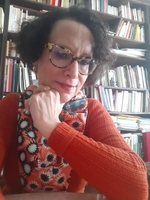UNESCO Chair
UNESCOChair in Intangible Heritage and Traditional Know-How: Linking Heritage
The Chair Holder | Maria Filomena Gonçalves
Since 2013, CIDEHUS has a UNESCO Chair "Intangible Heritage and Traditional Know-How: Linking Heritage".
Objectives:
- To establish a network of institutions in the two regions (Mediterranean and Africa) for the sharing of solutions to problems connected to intangible heritage, particularly in the domain “traditional craftsmanship“ and its application to tangible heritage;
- To promote and integrate systems of research, mobility, training, information and documentation activities in the fields of heritage, know-how, diversity, dialogue, development, memory, land management, cultural resources, taking into account all previous activities already developed on these topics in the Mediterranean and in Africa;
- To facilitate the collaboration between internationally recognized researchers and the research team of the University of Évora, Cape Verde and other institutions in the two regions, namely the Mediterranean and Africa;
- To enhance the importance of some principles, such as social solidarity, and therefore helping to consolidate the social cohesion of communities by focusing simultaneously on tradition and innovation;
- To safeguard memories and identities of communities and groups by enhancing young researchers’ knowledge of the principles guiding the 2003 UNESCO Convention for the Safeguarding of Intangible Cultural Heritage and the 1972 World heritage Convention;
- To improve and disseminate good practices related to heritage conservation and sustainable development and help people to build up alternatives concerning cultural and social economic development;
- To build up an attractive information and best practices exchange model for academic groups and researchers coming from Southern countries, under the motto ‘Researchers become learners’;
- To encourage researchers to work together and think in a multidisciplinary manner;
- To support land management policies and heritage conservation, with a special focus on World Heritage sites;
- To help people to understand others perspectives and respect them.






